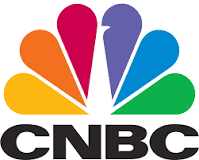U.S. President Donald Trump announces a deal with Pfizer to lower Medicaid drug prices in the Oval Office of the White House on Sept. 30, 2025 in Washington, DC.
Win McNamee | Getty Images
President Donald Trump on Tuesday announced an agreement with Pfizer to voluntarily sell its medications for less, as his administration pushes to link U.S. drug prices to cheaper ones abroad.
Pfizer has agreed to take measures to reduce U.S. drug prices, including selling its existing drugs to Medicaid patients at the lowest price offered in other developed nations, or what Trump calls the most-favored-nation price, according to the president. Pfizer will also guarantee the same "most-favored-nation" pricing on its new drugs for Medicare, Medicaid and commercial payers.
As part of the deal, Pfizer has also agreed to a three-year grace period during which the company's products won't face pharmaceutical-specific tariffs – as long as the drugmaker further invests in U.S. manufacturing. The company plans to invest $70 billion to reshore domestic drug manufacturing and research facilities.
"Pfizer has agreed to provide some of the most popular current medications to our consumers at heavily discounted prices anywhere between 50% and even 100%," Trump said, adding that those drugs will be available for direct purchase at a discount online on a website the administration is calling TrumpRx.gov.
Trump said he's working with other drugmakers to secure similar agreements over the next week, adding that Pfizer is the first.
"If we don't make a deal, we're going to tariff them," he said of the other companies' drugs.
The deal comes as Pfizer and 16 other drugmakers face Trump's Monday deadline to take steps to lower drug prices, as outlined in letters from the president.
During the press conference, Pfizer CEO Albert Bourla said the company satisfied all four of the requests Trump outlined in his letter. Among the other steps is pursuing tougher price negotiations abroad and adopting models that sell its medicines directly to consumers or businesses.
"The big winner clearly will be the American patients, there is no doubt," Bourla said. "They are the ones that will see a significant impact on their ability to buy medicines." But he said "American innovation and and the American economy" will also be "winners" with the agreement.
Pfizer said it will offer a large share of its primacy care treatments and certain specialty branded drugs at discounts of 50% on average and up to 85%, without naming specific medicines, according to a release from the company. Further details of the agreement remain confidential, Pfizer noted.
Shares of Pfizer rose more than 4% on Tuesday after the announcement.
Trump in May signed an executive order reviving a controversial plan, the "most favored nation" policy, that aims to slash drug costs by tying the prices of some medicines in the U.S. to the significantly lower ones abroad.
The deal comes as drugmakers brace for Trump's planned tariffs on pharmaceuticals imported into the country. Trump said in a Truth Social post Thursday that the U.S. will impose a 100% tariff on "any branded or patented Pharmaceutical Product" entering the country from Oct. 1.
The measure will not apply to companies building drug manufacturing plants in the U.S., Trump said. He added that the exemption covers projects where construction has started, including sites that have broken ground or are under construction.
In a note on Tuesday, BMO Capital Markets analyst Evan Seigerman said the deal is positive for Pfizer's stock and the broader pharmaceutical sector, as it "adds certainty and shifts POTUS policies potentially away from Pharma tariffs."
"Today's deal seems to set a path for other pharmaceutical players to follow, allowing for headline pricing concessions and a Trump 'win' without more punitive implementation" of the most favored nation policy or tariffs, he added.


 1 month ago
1 month ago














